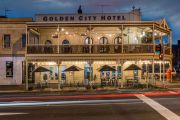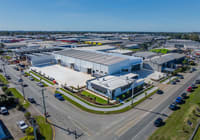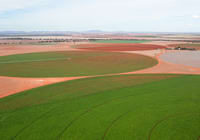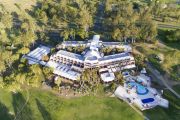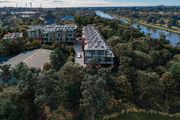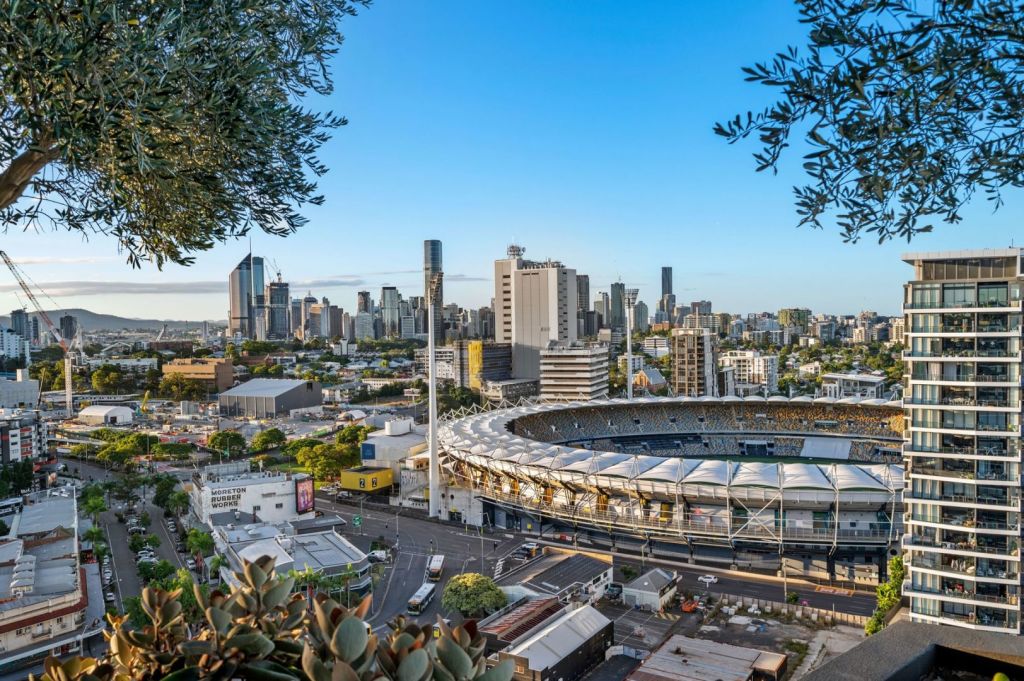
The Olympic Effect: What Brisbane 2032 means for commercial real estate
The pace of development in Brisbane over the next few years, driven by the 2032 Olympic and Paralympic Games, will present unmissable opportunities for investors.
New and upgraded sporting venues are in the pipeline, while multipurpose infrastructure and the athletes’ village are being planned, most of which will be used for permanent housing after the Games.
Critical infrastructure will be funded by the government, including the $7.1 billion venue infrastructure program, which will leave a lasting legacy in Brisbane and the broader state of Queensland.
The Games are also fuelling strong momentum in the city’s commercial real estate sector, with investors circling as they hunt for opportunities to get in on the ground floor.
A report from Colliers exploring the Brisbane Office Market reveals that government departments and a surge in demand for premium buildings from professional services, technology, engineering, and consulting sectors are driving up rents by 7 per cent annually, a growth not seen since 2008.
Meanwhile, Brisbane CBD hasn’t seen any new A-grade offices added to the mix since the completion of a refurbished office in Albert
Street in 2023, which added around 32,478 square metres to the market. The next A-grade building scheduled to enter the market is a project in North Quay, expected to be completed in 2025, which is already fully committed.
More cautious developers, held back by the national economic slowdown, could be missing a trick when it comes to investing in Brisbane, given what lies ahead. With limited new projects on the horizon and strong demand, rents are expected to continue rising, Colliers reports show.
The lead-up to the Olympics has already sparked a notable surge in demand within Brisbane’s office market, as businesses position themselves to capitalise on the increased activity, according to Colliers Queensland research associate director Pragya Sharma. “The industrial sector in Brisbane has already started reaping the benefits of increased infrastructure projects and population growth.
“As the Olympics draw nearer, the Brisbane industrial market is projected to experience a marked rise in demand for space, driven by ongoing improvements in infrastructure and the growing need for warehousing and distribution services,” Sharma says.
The retail sector in Brisbane is also set for a significant boost in the lead-up to the 2032 Olympics, with an expected overall economic injection of $8.1 billion into the Queensland economy. Repositioning of tired retail areas and competition for pockets surrounding key Olympic locations is expected.
“As Brisbane prepares to host the Olympics, the city has entered a golden decade of activity and growth. With limited new supply, ongoing interest and infrastructure investments, the market is expected to continue tightening, driving up rents and property values across the office, industrial and retail sectors,” Sharma says.
By all accounts, Brisbane is out of the blocks and on the home stretch to start delivering infrastructure for the 2032 Brisbane Olympic and Paralympic Games, which will create considerable opportunities for investing in Queensland’s commercial property sector, according to Simon Beirne, chief executive of Colliers Queensland.
International exposure from the Games has the potential to solidify Brisbane and South East Queensland as an attractive location for global capital seeking to diversify its investment portfolio across Asia Pacific markets.
“As Brisbane prepares to host the Games, increased investment and infrastructure spending are expected to unlock significant opportunities across the office, retail and industrial and capital market sectors,” Beirne says.
“It could also enhance the business investment profile of the region at a global level, demonstrating its potential to become a location for transnational companies to operate and compete at a similar status with Sydney and Melbourne,” he says.
“Brisbane … has entered a golden decade of activity and growth.”
